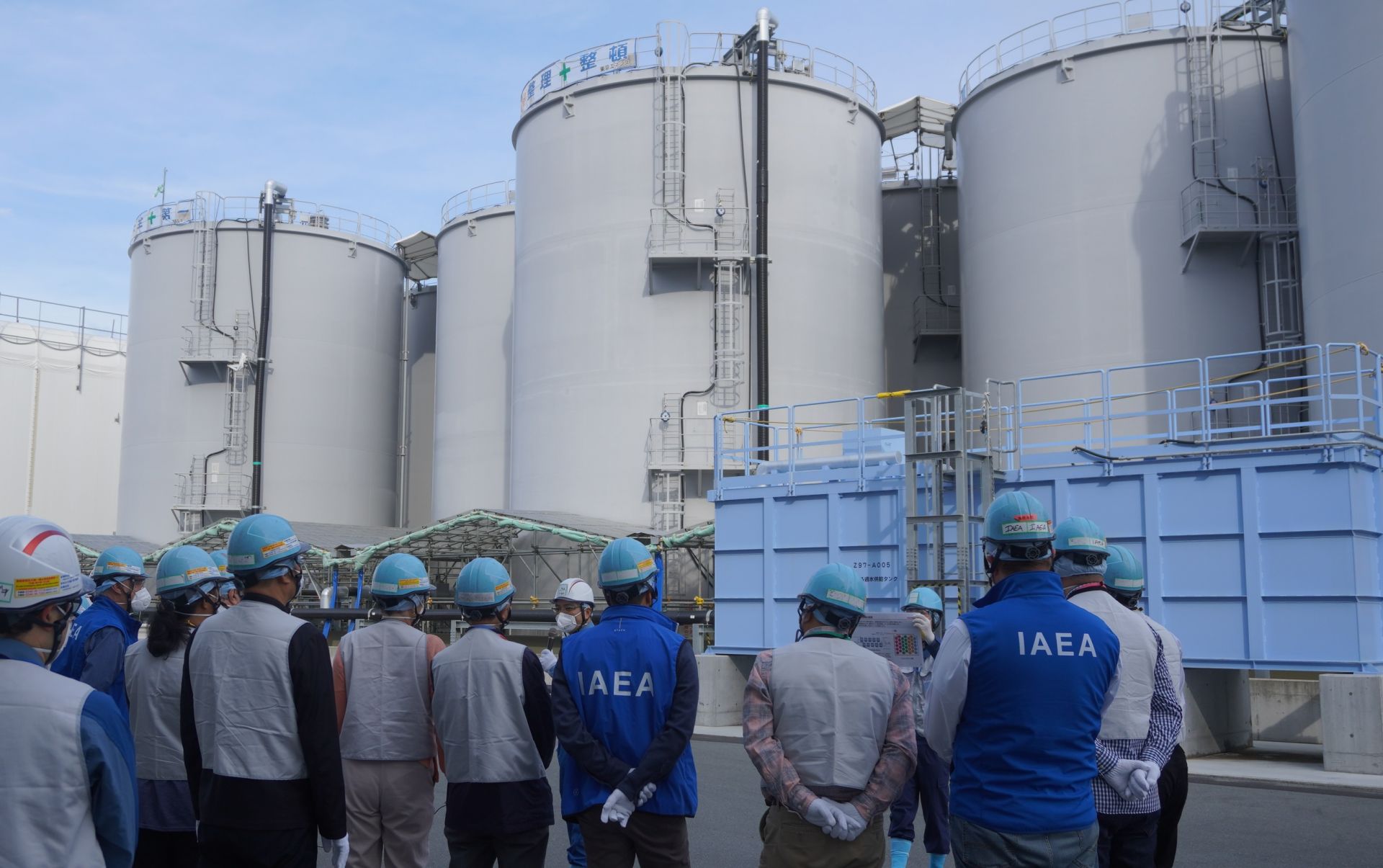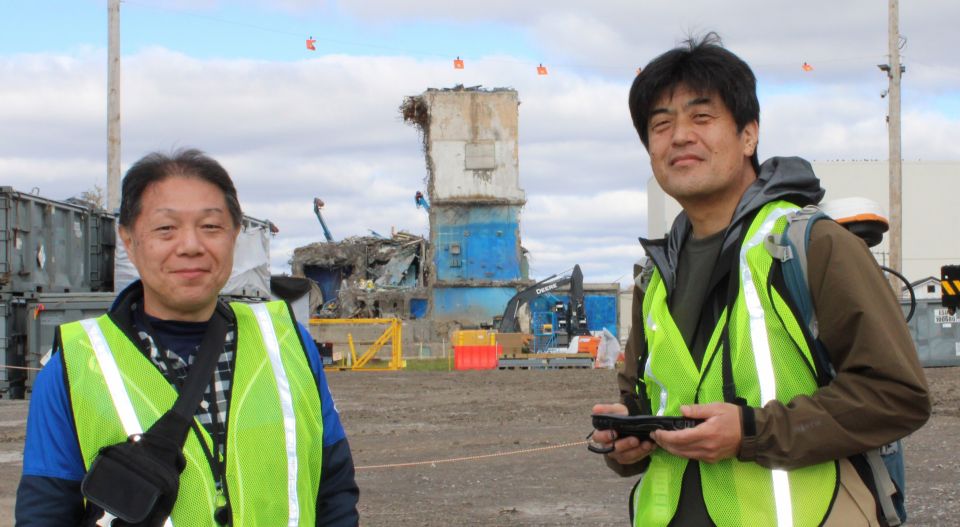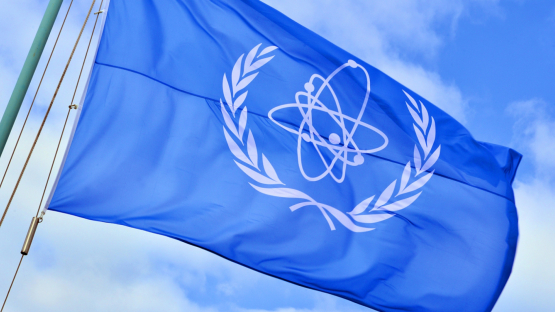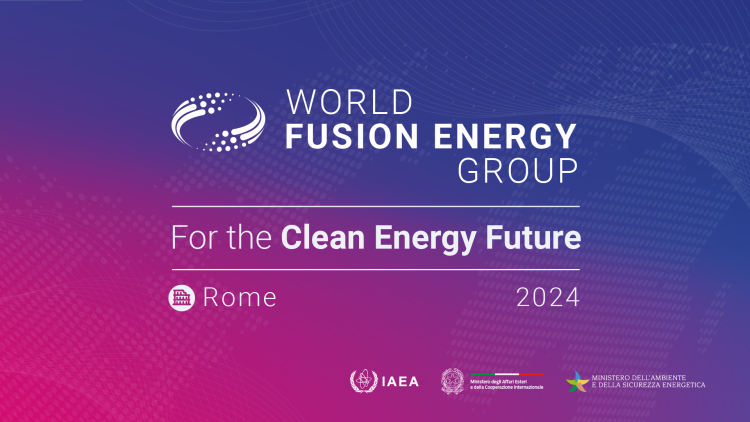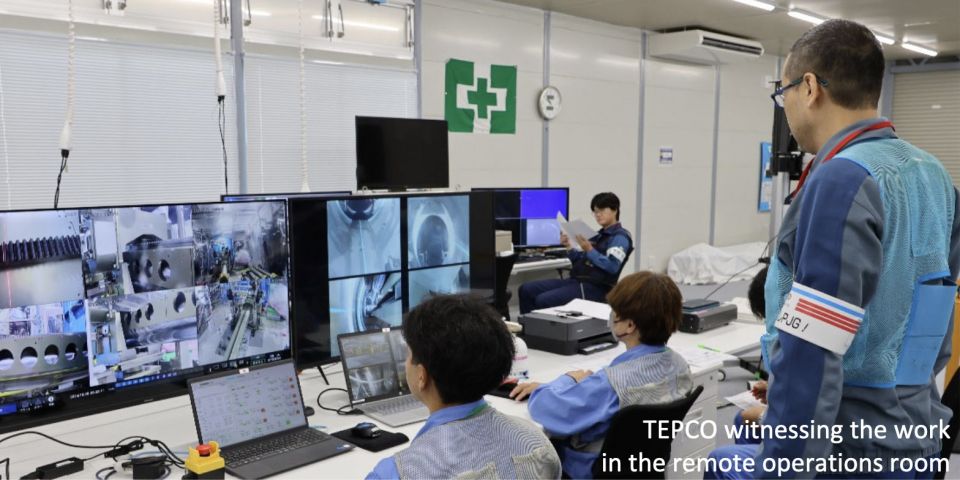An IAEA task force visited Fukushima in October 2023 to review the safety of TEPCO’s discharge of ALPS-treated water. (Photo: TEPCO)
International Atomic Energy Agency experts have confirmed that the tritium concentration in the fourth batch of treated water released from Japan’s Fukushima Daiichi nuclear power plant is far below the country’s operational limit.
Tokyo Electric Power Company (TEPCO) on February 28 started discharging this latest batch of water, which has been treated to remove radionuclides other than tritium using the Advanced Liquid Processing System (ALPS).
According to the IAEA, its independent on-site analysis confirmed that the tritium concentration of the ALPS-treated water is far below Japan’s operational limit of 1,500 becquerels per liter (Bq/L). An online monitor website, as of the morning of March 6 Japan time, indicated discharge tritium concentrations of 256 Bq/L. The website states that the normal Japanese regulatory concentration limit for tritium discharge is 60,000 Bq/L, while the World Health Organization’s drinking water quality guidelines call for a maximum tritium concentration of 10,000 Bq/L.
Batch release: Japan is discharging the ALPS-treated water from the disabled Fukushima site piecemeal, with the first batch released last August. The first three batches—a total of 23,400 cubic meters of water—were also confirmed by the IAEA to have contained tritium concentrations far below operational limits.
IAEA director general Rafael Mariano Grossi will visit Japan in March, during which time he will review the status of the water discharge at Fukushima.
The IAEA’s comprehensive report issued on July 4 last year found Japan’s plan for handling the treated water to be consistent with international safety standards and that the release as planned would have a negligible radiological impact to people and the environment.
